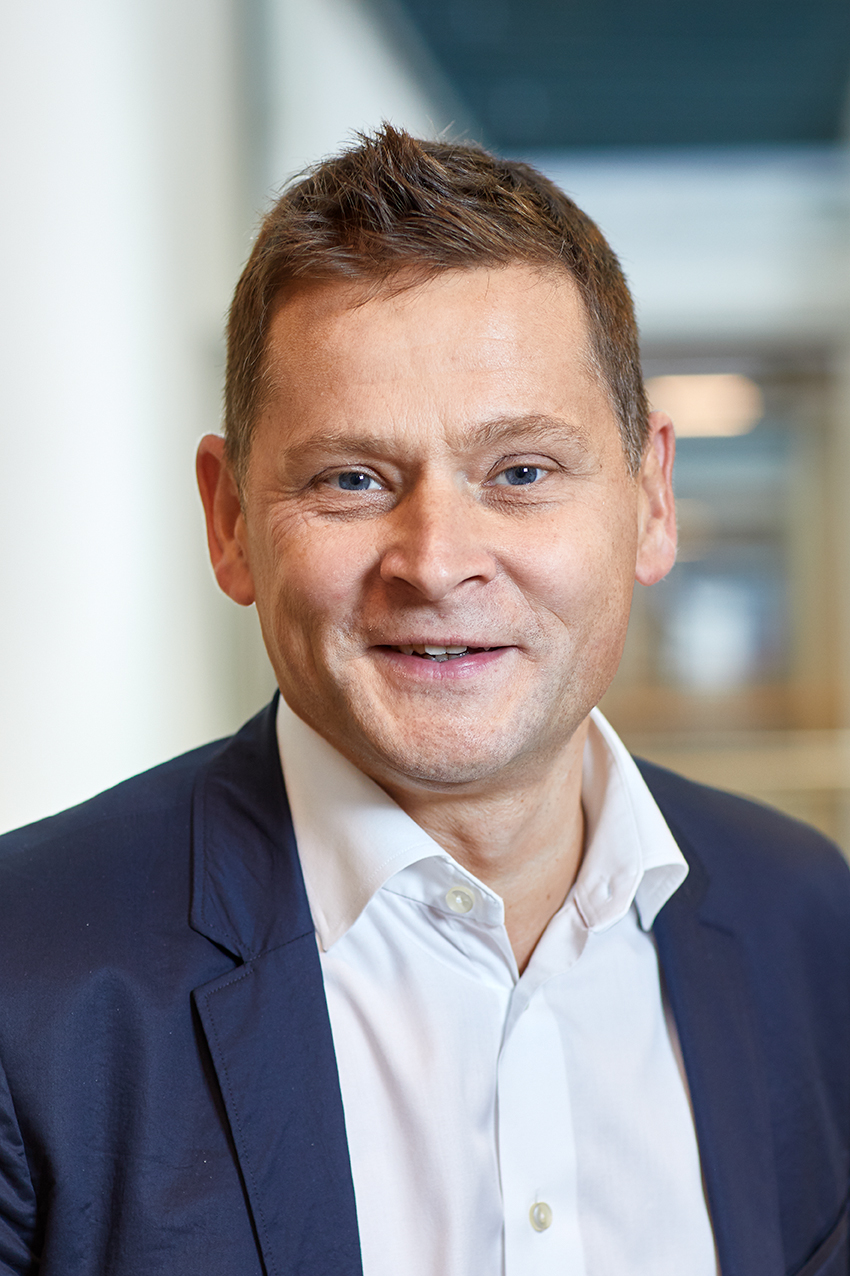Professor's portrait: Peter Ekman

Peter Ekman, Professor of Business Administration, specialising in industrial marketing is one of the professors to be installed at the Academic Ceremony on 7 October 2022.
Peter Ekman, Professor of Business Administration, specialising in industrial marketing. School of Business Society and Engineering , Division of Marketing and Strategy.
In what area do you conduct research?
In both my research and my teaching, I am interested in how companies' work with digitisation, service development and sustainability. I am also Deputy Dean of the national graduate school in management and IT, a graduate school that takes place in collaboration between twelve higher education institutions.
Please tell us briefly about your academic career – what decisions have brought you to where you are today?
I started as a Lecturer at Mälardalen University in June 2000 and my goal was to take a doctorate. A year later I was admitted to the national graduate school management and IT and in 2006 I became the third alumni of the graduate school. After that, I had a short post doc period with an educational specialisation (through STINT's “Teaching excellence" scholarship that then organised exchanges with liberal arts universities in the US. That experience resulted in that I, together with my newly acquired American colleagues, got my first self-funded research project which focused on how multinational companies implement enterprise systems. Since then my research has been about how different industries are affected by digitisation – with a focus on how markets are changing, the companies' strategies for dealing with these technology-driven changes and how this affects the prevailing business logic.
What is the driving force in your research?
Before my academic career took off I worked in small consulting firms and also at a ABB. My driving force all along has been to think about how those companies that cooperate can become smarter and better together. I have also taken this passion with me in my research – why do companies behave the way they do, how can they become more efficient together and increase their value co-creation? Both for the industry, the organisation, its employees, and for other stakeholders (e.g. customers and suppliers) as well as for society at large?
Which research domains are particularly important for you?
My research focuses mainly on digitalisation, and I have been able to study how it affects companies' business relationships, for example based on factors such as trust, commitment and engagement. In my recent studies, I have been particularly interested in how digitisation can support the sustainability challenges facing society. Especially in the real estate sector, and in particular the transformation of the energy sector, increased circular thinking and how the collaborative economy can improve the use of facilities.
You could describe what is happening now as a transformation of market ecosystems. This transformation is not something that can be done overnight, but it will require new roles, new business models and new behaviours. Currently there are many interesting market transformations that are accelerated by digitisation and that enable a more sustainable businesses – changes which I and my colleagues will continue to follow.
What's the best part about conducting research at MDU?
Mälardalen University is a young higher education institution where innovative collaboration both in and outside the University are encouraged – something which has suited me as I enjoy mixing academia and business practice.
How would you describe your research environment at MDU?
Research in business administration, industrial engineering and management has developed significantly over the past ten years, both in the number of researchers and output (scientific articles, books and reports) and I feel privileged to have been part of this journey.
When I joined MDU after the turn of the millennium, many of our projects were focused on globalisation and digitisation, a research stream that has continued and many lessons have been learnt, but which today has expanded to also include sustainability. We hope our research environment will be able to contribute with how companies can take more types of values into account, both environmental and social, for better organising, joint governance and market offerings.
Several researchers are also currently investigating how digitisation can support our transition towards a sustainable global society. Today, MDU has a good mix of researchers from doctoral students to Professors working on these challenges, usually in direct collaboration with the local private sector and society. In the area of business administration, MDU has a large proportion of external funding if you do a national comparison – something that I see as proof that what we do is relevant and important.
How do you feel about becoming a Professor given that MDU has recently become an official University?
My appointment to Professor and the conferring of University status on MDH took place within two weeks of one another. It feels honourable, exciting and inspiring to become a Professor at a time of growth and positive change at MDU. I hope to contribute to this positive development and look forward to representing MDU as their Professor of Business Administration, specialising in Industrial Marketing.
